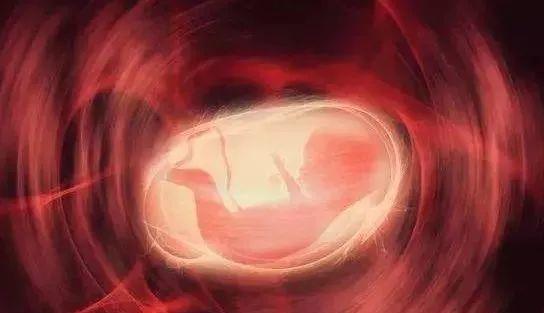Fetal heart and fetal buds are generally a stage in the process of embryonic development, which is a manifestation of good embryonic development, so many women are very concerned about this topic after conceiving a baby.
When will there be fetal heartbusts
Under normal circumstances, well-developed embryos generally have fetal buds at 6-7 weeks of pregnancy, and there will be primitive heart canal beats at 7-8 weeks of pregnancy, that is, fetal heart rates.

If the gestational ring has not yet appeared fetal buds, you can look at the size of the pregnancy sac, and at the same time through the comprehensive judgment of blood HCG and progesterone, some cases may be because the pregnant mother's menstruation is not accurate, the ovulation time is unstable, affecting the estimation of gestational age, and the germ may be seen in another week.
The fetal heartbeat can only be seen when the fetal buds appear, and the doctor can use ultrasound equipment to determine the fetal heartbeat and whether it is alive or not. If fetal heartbeat has not been detected by the 10th week of pregnancy, the diagnosis of embryonic cessation can be made after the last menstrual error and delayed ovulation.
Will there be fetal buds with fetal heartbumps that will still be stopped?
With fetal heartbeat fetal buds, it proves to be relatively stable, and the possibility of being affected by external factors is relatively small, but there is also a risk of fetal arrest.
Especially for pregnant women with a history of disease should pay special attention, such as endocrine diseases, polycystic ovary syndrome patients or immune system diseases, etc., after having a fetal heartbeat and fetal buds, you should also actively monitor the primary disease, follow the doctor's advice, such people are more likely to have fetal arrest than normal people.
What are the reasons for fetal abortation
There are many reasons for embryo cessation.
First, it may be related to the quality of the embryo itself. It has been reported in the literature that 50% of embryos are related to embryonic chromosomal abnormalities, embryo suspension is a natural process of survival and inferiority, good embryos survive, and bad embryos are naturally eliminated.
Second, it may be related to age. With the increase of age, all organs of the human body will appear aging and decline, eggs and sperm are no exception, especially women, 35 years old is the inflection point of ovarian function decline, egg quality is significantly reduced, the risk of embryonic cessation will also increase.
Third, the immune microenvironment and endocrine disorders can also cause embryos to stop breeding. Estrogen, progesterone and human chorionic gonadotropin (HCG) are three important hormones needed for early embryonic development, and these three hormones will increase significantly after pregnancy. However, some expectant mothers have insufficient secretion of the above hormones due to their own reasons, which may cause the embryo to stop breeding.
Fourth, the uterine cavity environment may have an impact on the embryo. For example, endometrial polyps, uterine fibroids, or endometrium that are too thin or too thick can affect embryonic development.
In addition, chromosomal abnormalities, genital tract infections and environmental factors can also cause the embryo to stop developing.
What to do in the event of fetal cessation
Once the fetus is confirmed, it is necessary to actively cooperate with the doctor to terminate the pregnancy as soon as possible.
Some pregnant mothers who have suffered fetal cessation of pregnancy have no obvious symptoms themselves, no abdominal pain and no vaginal bleeding, but they find that the fetus has stopped developing during routine obstetric examinations. When doctors recommend terminating a pregnancy, they are often unacceptable, unwilling to face reality, and instinctively want to wait and see.
In fact, once the fetus stops developing and the fetal heartbeat disappears, there is no need to protect the fetus. Moreover, after the fetus is stopped, the embryo will release some substances, resulting in abnormal coagulation function of the mother. For pregnant mothers whose embryos are not naturally excreted, if the pregnancy tissue is not removed from the uterine cavity in time, it may cause serious consequences such as heavy bleeding or incomplete miscarriage.
Once the long-term unused embryo is muscled and wants to be cleared, the trauma to the uterine lining will be very large, which will directly affect future pregnancies.